36 Arguments for the Existence of God - [6]
Auerbach, with his uncanny nose for intellectual property, hadn’t hesitated in accepting Cass as a client, unconcerned that there was already a glut of godlessness on the market. Atheist books were selling well, sometimes edging out cookbooks and memoirs written by household pets to rise to the top of the best-seller list. Though he never argues with success, his agent would probably be just as happy if the atheist with a soul went lighter on the soul.
The atheist with a soul. Cass always smiles at the absurdity of the phrase. But which is the more absurd element? The truth is-and what’s the good of a man contemplating an inhumanly frozen world at 4 a.m. if no truth-telling ensues?-that Cass is somewhat at a loss to account for what he has done. How to explain those Thirty-Six Arguments for the Existence of God (see Appendix), all of them formally constructed in the preferred analytic style, premises parading with military precision, and every shirking presupposition and sketchy implication forced out into the open and subjected to rigorous inspection?
Cass had started out with all the standard arguments for God’s existence, the ones discussed in philosophy classes and textbooks: The Cosmological Argument (#1), The Ontological Argument (#2), The Classical Teleological Argument (#3A), the arguments from Miracles, Moral Truths, and Mysticism (#’s 11, 16, and 22, respectively), Pascal’s Wager (#31), and William James’s Argument from Pragmatism (#32). He had also analyzed the new batch of arguments recently whipped up by the Intelligent Design crowd-to wit, The Argument from Irreducible Complexity (#3B), The Argument from the Paucity of Benign Mutations (#3C), The Argument from the Original Replicator (#3D), The Argument from the Big Bang (#4), The Argument from the Fine-Tuning of the Physical Constants (#5), and The Argument from the Hard Problem of Consciousness (#12). But then he had gone beyond these, too, attempting to polish up into genuine arguments those religious intuitions and emotions that are often powerfully evocative but too sub-syllogistic to be regarded as actual arguments. He had tried to capture under the net of analytic reason those fleeting shadows cast by unseen winged things darting through the thick foliage of the religious sensibility.
So Cass had formulated The Argument from Cosmic Coincidences (#7), appealing to such facts as these: that the diameter of the moon as seen from the earth is the same as the diameter of the sun as seen from the earth, which is why we can have those spectacular eclipses when the corona of the sun is revealed in all its glory. He had formulated The Argument from Sublimity (#34), trying to capture the line of reasoning lurking behind, for example, the recent testament of one evangelical scientist who had felt his doubts falling away from him when he was hiking in the mountains and came upon a frozen waterfall-in fact a trinity of a frozen waterfall, with three parts to it. “At that moment, I felt my resistance leave me. And it was a great sense of relief. The next morning, in the dewy grass in the shadow of the Cascades, I fell on my knees and accepted this truth-that God is God, that Christ is his son and that I am giving my life to that belief.”
For the right observer, Cass supposed, the sublime trinity of arches etched out in the ice below might yield a similar epiphany.
Cass had named the twenty-eighth in his list “The Argument from Prodigious Genius,” though privately he thinks of it as “The Argument from Azarya.” The astonishment of beholding genius, especially when it shows up in child prodigies, is so profound that it can feel almost like violence, as if a behavioral firestorm has devastated the laws of psychology, leaving us with no principles for explaining what we’re seeing and hearing. “There are children who are born as if knowing” are words that Cass had heard twenty years ago, inspired by a child who could see the numbers and thought that they were angels.
And then there’s The Argument from the Improbable Self (#13), another one that engages Cass in a personal way. He had struggled to squeeze precision into the sense of paradox he knows too well, the flailing attempt to calm the inside-outside vertigo to which he’s given, trying to construct something semi-coherent beneath that vertiginous step outside himself that would result from his staring too long at the improbable fact of his being identical with… himself.
If somebody hasn’t experienced this particular kind of metaphysical seizure for himself, then it’s hard to find the words to give a sense of what it’s like. Cass had experienced it as a boy, lying in bed and thinking his way into the sense of the strangeness of being
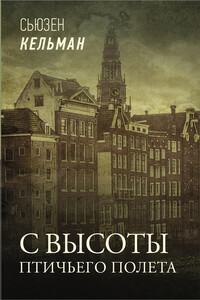
1941 год. Амстердам оккупирован нацистами. Профессор Йозеф Хельд понимает, что теперь его родной город во власти разрушительной, уничтожающей все на своем пути силы, которая не знает ни жалости, ни сострадания. И, казалось бы, Хельду ничего не остается, кроме как покорится новому режиму, переступив через себя. Сделать так, как поступает большинство, – молчаливо смириться со своей участью. Но столкнувшись с нацистским произволом, Хельд больше не может закрывать глаза. Один из его студентов, Майкл Блюм, вызвал интерес гестапо.
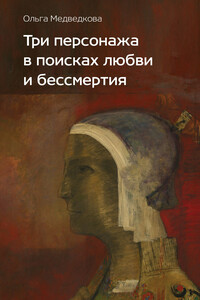
Что между ними общего? На первый взгляд ничего. Средневековую принцессу куда-то зачем-то везут, она оказывается в совсем ином мире, в Италии эпохи Возрождения и там встречается с… В середине XVIII века умница-вдова умело и со вкусом ведет дела издательского дома во французском провинциальном городке. Все у нее идет по хорошо продуманному плану и вдруг… Поляк-филолог, родившийся в Лондоне в конце XIX века, смотрит из окон своей римской квартиры на Авентинский холм и о чем-то мечтает. Потом с риском для жизни спускается с лестницы, выходит на улицу и тут… Три персонажа, три истории, три эпохи, разные страны; три стиля жизни, мыслей, чувств; три модуса повествования, свойственные этим странам и тем временам.
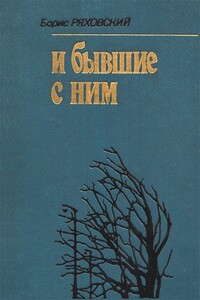
Герои романа выросли в провинции. Сегодня они — москвичи, утвердившиеся в многослойной жизни столицы. Дружбу их питает не только память о речке детства, об аллеях старинного городского сада в те времена, когда носили они брюки-клеш и парусиновые туфли обновляли зубной пастой, когда нервно готовились к конкурсам в московские вузы. Те конкурсы давно позади, сейчас друзья проходят изо дня в день гораздо более трудный конкурс. Напряженная деловая жизнь Москвы с ее индустриальной организацией труда, с ее духовными ценностями постоянно испытывает профессиональную ответственность героев, их гражданственность, которая невозможна без развитой человечности.
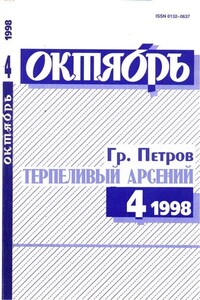
«А все так и сложилось — как нарочно, будто подстроил кто. И жена Арсению досталась такая, что только держись. Что называется — черт подсунул. Арсений про Васену Власьевну так и говорил: нечистый сосватал. Другой бы давно сбежал куда глаза глядят, а Арсений ничего, вроде бы даже приладился как-то».

В этой книге собраны небольшие лирические рассказы. «Ещё в раннем детстве, в деревенском моём детстве, я поняла, что можно разговаривать с деревьями, перекликаться с птицами, говорить с облаками. В самые тяжёлые минуты жизни уходила я к ним, к тому неживому, что было для меня самым живым. И теперь, когда душа моя выжжена, только к небу, деревьям и цветам могу обращаться я на равных — они поймут». Книга издана при поддержке Министерства культуры РФ и Московского союза литераторов.
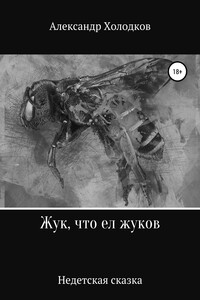
Жестокая и смешная сказка с множеством натуралистичных сцен насилия. Читается за 20-30 минут. Прекрасно подойдет для странного летнего вечера. «Жук, что ел жуков» – это макросъемка мира, что скрыт от нас в траве и листве. Здесь зарождаются и гибнут народы, кипят войны и революции, а один человеческий день составляет целую эпоху. Вместе с Жуком и Клещом вы отправитесь в опасное путешествие с не менее опасными последствиями.